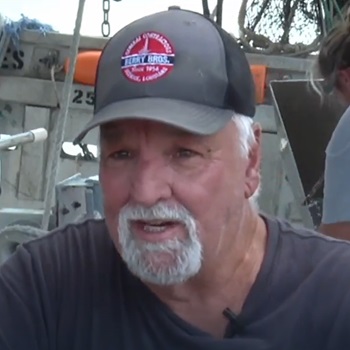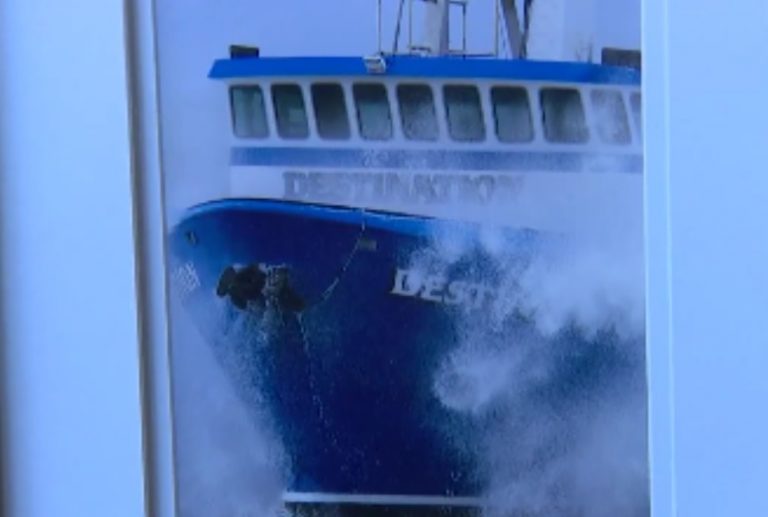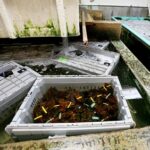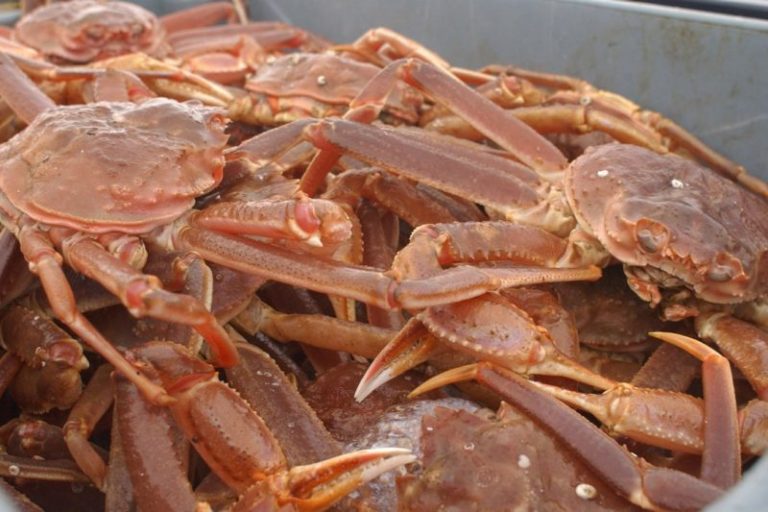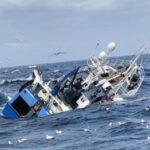Category Archives: Gulf of Mexico
Glass fibers – the rest of the story????? by Nils E. Stolpe/FishNet-USA
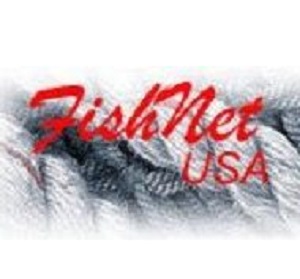 Floating around (sorry!) is the surprising story that the fiberglass that is being donated gratis to our oceans by the offshore wind industry is harmless because the fibers that make it up are chemically inert. Reassuring, isn’t it? Well, in words made immortal by George and Irwin Gershwin in Porgy and Bess, “it ain’t necessarily so.” To put those immortal words in the proper real world (not NOAA or BOEM scientist’s) perspective, the asbestos fibers that are still being used legally in a whole bunch of manufacturing processes today are chemically inert on their own. You can chomp on and swallow asbestos fibers to your heart’s content, as long as they stay in large chunks, with no ill effects. According to the National Library of Medicine “asbestos fibers are basically chemically inert, or nearly so. They do not evaporate, dissolve, burn, or undergo significant reactions with most chemicals.” So what happens when a huge fiberglass rotor on an offshore generator (300+ feet long and still enlarging as wind generators become larger-and more efficient) delaminates and takes a dive into one of our oceans? more, >>CLICK TO READ<< 15:52
Floating around (sorry!) is the surprising story that the fiberglass that is being donated gratis to our oceans by the offshore wind industry is harmless because the fibers that make it up are chemically inert. Reassuring, isn’t it? Well, in words made immortal by George and Irwin Gershwin in Porgy and Bess, “it ain’t necessarily so.” To put those immortal words in the proper real world (not NOAA or BOEM scientist’s) perspective, the asbestos fibers that are still being used legally in a whole bunch of manufacturing processes today are chemically inert on their own. You can chomp on and swallow asbestos fibers to your heart’s content, as long as they stay in large chunks, with no ill effects. According to the National Library of Medicine “asbestos fibers are basically chemically inert, or nearly so. They do not evaporate, dissolve, burn, or undergo significant reactions with most chemicals.” So what happens when a huge fiberglass rotor on an offshore generator (300+ feet long and still enlarging as wind generators become larger-and more efficient) delaminates and takes a dive into one of our oceans? more, >>CLICK TO READ<< 15:52
About that shrimp boat that struck the Matanzas Pass Bridge twice
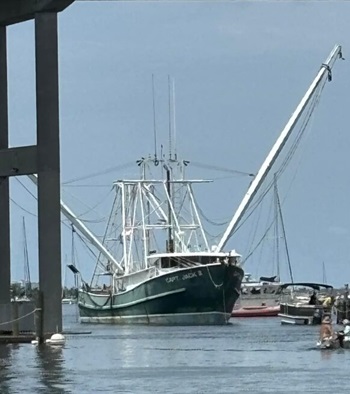 Chris Gala had a plan for the new shrimp boat her crew picked up from Texas last week. While bringing it to dock through Matanzas Pass on Fort Myers Beach, the boat and its long outriggers was to be assisted by another vessel to get under the Matanzas Pass Bridge. The crew, which had been sidelined for four days off the Texas coast as Hurricane Francine swept in, may have “jumped the gun” as they approached shore, Gala said. A couple hours before high tide was to sweep in at noon, the boat attempted to pass under the Matanzas Pass Bridge, but its large steel outriggers got stuck against the bridge. Gala said the crew was experienced but may have gotten overly “excited” as they drew close to home. “We knew the outriggers were extra big,” Gala said. “We had a plan to push it through with a boat during low tide.” Gala said the high tide was exacerbated by a full moon which made the tide extra high. Photos, more, >>CLICK TO READ<< 18:41
Chris Gala had a plan for the new shrimp boat her crew picked up from Texas last week. While bringing it to dock through Matanzas Pass on Fort Myers Beach, the boat and its long outriggers was to be assisted by another vessel to get under the Matanzas Pass Bridge. The crew, which had been sidelined for four days off the Texas coast as Hurricane Francine swept in, may have “jumped the gun” as they approached shore, Gala said. A couple hours before high tide was to sweep in at noon, the boat attempted to pass under the Matanzas Pass Bridge, but its large steel outriggers got stuck against the bridge. Gala said the crew was experienced but may have gotten overly “excited” as they drew close to home. “We knew the outriggers were extra big,” Gala said. “We had a plan to push it through with a boat during low tide.” Gala said the high tide was exacerbated by a full moon which made the tide extra high. Photos, more, >>CLICK TO READ<< 18:41
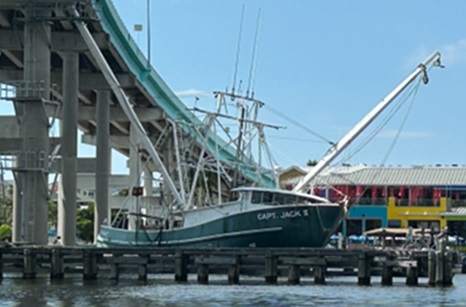
Matanzas Pass Bridge hit again by the same shrimp boat
The Florida Department of Transportation has reported that the Matanzas Pass Bridge was hit again by the same passing shrimp boat that struck it a day before. FDOT released a statement on Tuesday noting that the shrimp boat had made contact with the bridge sometime that morning; however, according to the Lee County Sheriff’s Office marine unit, there was no visible damage to the bridge. more, >>CLICK TO READ<<, >Video here< 10:37
Why Did That Boat Crash Into The Matanzas Pass Bridge?
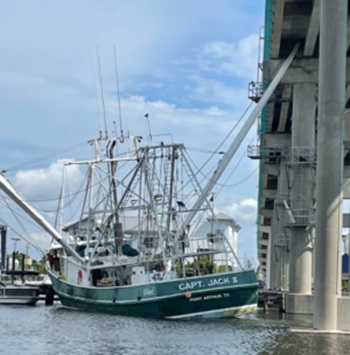 High tide, a swirling current, and a captain who misread the height of the bridge could have been the causes but until the United States Coast Guard completes its investigation it’s all speculation at this point. What we do know is that a commercial fishing vessel called F/V Capt. Jack II out of Port Arthur, TX got caught under the Matanzas Pass Bridge late Monday morning. Not long after the crash, the Florida Department of Transportation with an assist from the Lee County Sheriff’s Department closed the bridge in both directions while an FDOT engineer traveled from Tampa to Fort Myers Beach to inspect the bridge. Four hours later the bridge was determined to be safe and was reopened. more, >>CLICK TO READ<< 06:17
High tide, a swirling current, and a captain who misread the height of the bridge could have been the causes but until the United States Coast Guard completes its investigation it’s all speculation at this point. What we do know is that a commercial fishing vessel called F/V Capt. Jack II out of Port Arthur, TX got caught under the Matanzas Pass Bridge late Monday morning. Not long after the crash, the Florida Department of Transportation with an assist from the Lee County Sheriff’s Department closed the bridge in both directions while an FDOT engineer traveled from Tampa to Fort Myers Beach to inspect the bridge. Four hours later the bridge was determined to be safe and was reopened. more, >>CLICK TO READ<< 06:17
As Terrebonne recovers from Francine, some residents worry about its future
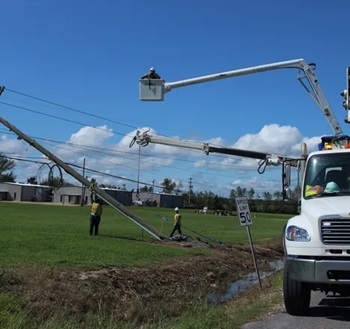 Recovery efforts continued Thursday in Terrebonne Parish, where thousands remained without electricity a day after Hurricane Francine made landfall there. While the Category 2 storm brought less severe property damage than recent storms, it left some residents with greater worries for the area’s future. Among them is Terrebonne Parish Councilwoman Kim Chauvin, who spent much of the day looking for and clearing clogged storm drains. One of the few remaining shrimpers in Louisiana, Chauvin and her family operate shrimp boats, a fuel and ice dock, a shrimp processing plant and seafood shop. Her home and businesses lost power when the storm approached, and she was still without electricity as of 8 p.m. Thursday. Entergy Louisiana reported less than 22,000 of its customers in Terrebonne Parish were powerless as of 7 a.m. Friday. more, >>CLICK TO READ<< 09:23
Recovery efforts continued Thursday in Terrebonne Parish, where thousands remained without electricity a day after Hurricane Francine made landfall there. While the Category 2 storm brought less severe property damage than recent storms, it left some residents with greater worries for the area’s future. Among them is Terrebonne Parish Councilwoman Kim Chauvin, who spent much of the day looking for and clearing clogged storm drains. One of the few remaining shrimpers in Louisiana, Chauvin and her family operate shrimp boats, a fuel and ice dock, a shrimp processing plant and seafood shop. Her home and businesses lost power when the storm approached, and she was still without electricity as of 8 p.m. Thursday. Entergy Louisiana reported less than 22,000 of its customers in Terrebonne Parish were powerless as of 7 a.m. Friday. more, >>CLICK TO READ<< 09:23
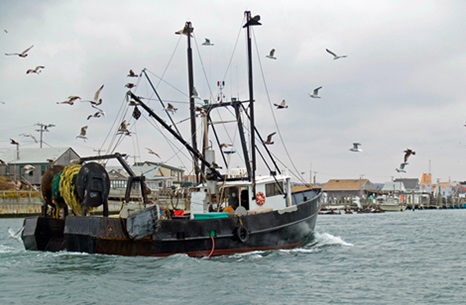
OPINION: Reel them in – Regional fisheries councils violate constitution and hurt accountability
That is the position in which many fishermen find themselves. They share a desire for sustainable fisheries and support some of the federal efforts at regulation. But they oppose certain federal water catch limits and allocations between commercial and recreation sectors that are set by regional fishery management councils made up of members who aren’t accountable through elections or to elected officials. Pacific Legal Foundation is representing these individuals and small businesses in courts around the country, making what we think is a simple argument based on the text and purpose of the Constitution. Specifically, that it requires that executive branch officials with significant authority be appointed by the president or a member of his cabinet. more, >>CLICK TO READ<< 06:40

U.S. Offshore Wind: Election 2024 May Redefine the Sector
The US offshore wind industry is at a crucial turning point. After several years of growth under the Biden administration, the sector faces potential reconfiguration depending on the outcome of the 2024 presidential election. On the one hand, a Donald Trump victory could redirect the country’s energy priorities towards conventional resources, such as offshore oil and gas. On the other, a Kamala Harris victory would mean a continuation of current ambitions, including the goal of 30 GW of installed capacity by 2030. Commercial fishing groups and other interested parties challenging these projects could find an ally in a Trump administration. Organizations such as the New England Fishermen’s Stewardship Association (NEFSA) have already voiced concerns about the impacts of offshore wind projects on the marine environment and fisheries. more, >>CLOCK TO READ<< 10:36
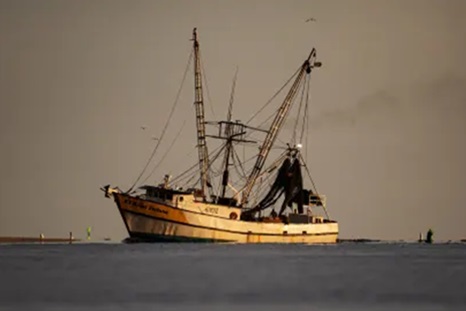
Shrimp scurry from Hurricane Francine storm surge, filling fishing nets of struggling shrimpers
Hurricane Francine closed in on Terrebonne and Lafourche with 100 mph winds Sept. 11. As the storm pushed tidal waters toward land, shrimp scurried for inland waters. Shrimpers took advantage of the migration, dropping nets and pulling in thousands of pounds in a short timeframe. The hauls were great, but the low prices meant what would have been a drop in the bucket, instead fell in an empty pail. “We did good last night and the night before,” Jonathan Guidry said. “The shrimp was jumpin’ all over. They had some land nets on side of us. They was startin’ to pick up every 10 minutes, and they had maybe 120 to 130 pounds every 10 to 30 minutes.” Guidry said with all the flood gates closed, he thinks the shrimp were funneled through the Bubba Dove lock gate as they sought safety from the storm. more, >>CLICK TO READ<< 12:11
Hurricane Francine is predicted to make landfall west of New Orleans
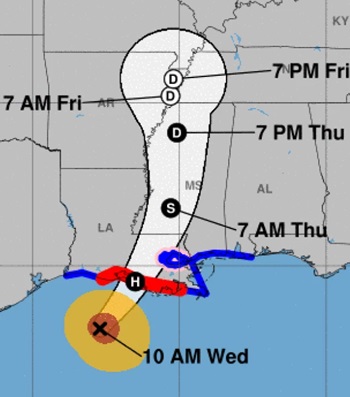 Hurricane Francine is crossing over warm waters in the western Gulf of Mexico, and it has Louisiana’s coast — and the greater New Orleans area — in its sights, according to the National Hurricane Center’s latest forecast. The storm became a hurricane Tuesday night; its maximum sustained winds are now topping 90 mph. As of 10 a.m. CT, Francine was about 150 miles southwest of Morgan City, La., moving northeast at 13 mph. “Francine is anticipated to make landfall in Louisiana … late this afternoon or evening,” the hurricane center said on Wednesday. If the storm surge coincides with high tide, water could reach 5 to 10 feet above ground in areas from Louisiana’s Intracoastal City and Vermilion Bay to Port Fourchon. The hurricane’s outer bands of rain began hitting Lafayette, Baton Rouge and other areas in southern Louisiana Wednesday morning. In the gulf, an oil platform north of the center recently reported a peak gust of 105 mph, the NHC said. more, >>CLICK TO READ<< 14:21
Hurricane Francine is crossing over warm waters in the western Gulf of Mexico, and it has Louisiana’s coast — and the greater New Orleans area — in its sights, according to the National Hurricane Center’s latest forecast. The storm became a hurricane Tuesday night; its maximum sustained winds are now topping 90 mph. As of 10 a.m. CT, Francine was about 150 miles southwest of Morgan City, La., moving northeast at 13 mph. “Francine is anticipated to make landfall in Louisiana … late this afternoon or evening,” the hurricane center said on Wednesday. If the storm surge coincides with high tide, water could reach 5 to 10 feet above ground in areas from Louisiana’s Intracoastal City and Vermilion Bay to Port Fourchon. The hurricane’s outer bands of rain began hitting Lafayette, Baton Rouge and other areas in southern Louisiana Wednesday morning. In the gulf, an oil platform north of the center recently reported a peak gust of 105 mph, the NHC said. more, >>CLICK TO READ<< 14:21
Flawed fisheries science ’cause for concern’
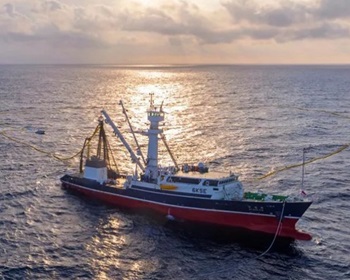 An article just published in the respected science journal Marine Policy highlights the need for objective and reliable fisheries science to ensure conservation and sustainable development. It says the publication of flawed papers, some in high-profile journals, is cause for concern, and that misleading science can misinform policy and the public. The authors, who include well-known US fisheries scientist Professor Ray Hilborn, call for the rigour of peer reviews and editorial management to be strengthened, and say journal publishers must ensure the reliability of papers they publish. “The prevalence of papers conveying unjustified messages and with the potential to influence public perceptions and policies is concerning,” they say, providing examples where flawed methodology led to the exaggeration of negative impacts on ecosystems by the fishing industry – which was often then sensationalised by campaigners. In all of the examples quoted, a rebuttal was subsequently published. more, >>CLICK TO READ<< 12:46
An article just published in the respected science journal Marine Policy highlights the need for objective and reliable fisheries science to ensure conservation and sustainable development. It says the publication of flawed papers, some in high-profile journals, is cause for concern, and that misleading science can misinform policy and the public. The authors, who include well-known US fisheries scientist Professor Ray Hilborn, call for the rigour of peer reviews and editorial management to be strengthened, and say journal publishers must ensure the reliability of papers they publish. “The prevalence of papers conveying unjustified messages and with the potential to influence public perceptions and policies is concerning,” they say, providing examples where flawed methodology led to the exaggeration of negative impacts on ecosystems by the fishing industry – which was often then sensationalised by campaigners. In all of the examples quoted, a rebuttal was subsequently published. more, >>CLICK TO READ<< 12:46
Athearn Marine Agency Boat of the Week: 60’x18’x9′ Astor Longliner, Cummins KT 1150
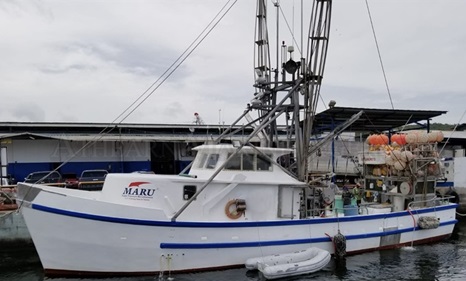 To review specifications, information, and 15 photos’, >click here< To see all the boats in this series, >click here< 06:46
To review specifications, information, and 15 photos’, >click here< To see all the boats in this series, >click here< 06:46
Hurricane Francine bears down on Louisiana: Here’s when and where to expect landfall
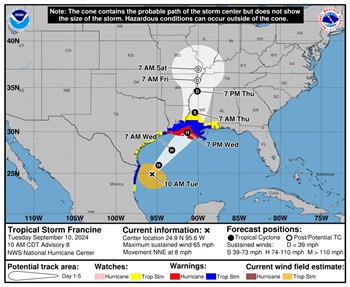 Hurricane Francine is bearing down on Louisiana with an expected landfall Wednesday afternoon packing winds of up to 100 mph as a potential Category 2 hurricane. Landfall impact remains likely at or near Vermilion Bay, but Louisiana State Climatologist Jay Grymes said Francine’s track is shifting slightly to the east, which places the state Capitol of Baton Rouge in peril on the eastern side of the storm. “The real action begins Wednesday morning with tropical storm winds before landfall mid-afternoon or evening,” Grymes said during Tuesday’s news conference with Gov. Jeff Landry. “The forecast is for a storm surge of 6-10 feet in Vermilion Bay, but the track has moved ever so slightly east so now Baton Rouge is under the gun. more, >>CLICK TO READ<< 14:20
Hurricane Francine is bearing down on Louisiana with an expected landfall Wednesday afternoon packing winds of up to 100 mph as a potential Category 2 hurricane. Landfall impact remains likely at or near Vermilion Bay, but Louisiana State Climatologist Jay Grymes said Francine’s track is shifting slightly to the east, which places the state Capitol of Baton Rouge in peril on the eastern side of the storm. “The real action begins Wednesday morning with tropical storm winds before landfall mid-afternoon or evening,” Grymes said during Tuesday’s news conference with Gov. Jeff Landry. “The forecast is for a storm surge of 6-10 feet in Vermilion Bay, but the track has moved ever so slightly east so now Baton Rouge is under the gun. more, >>CLICK TO READ<< 14:20
Coast Guard urges preparedness ahead of Tropical Storm Francine
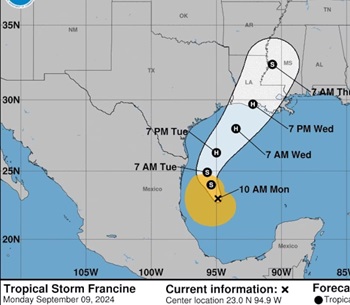 New Orleans – The Coast Guard is preparing, Monday, and will respond to impacts from Tropical Storm Francine as it is expected to strengthen to a hurricane and make landfall along the Louisiana coast on Wednesday. The Coast Guard’s ability to conduct rescues can be diminished or unavailable at the height of a storm. As soon as it is safe to operate after a storm, the Coast Guard, along with our local first responders and federal partners, will provide the life-saving support needed in storm-stricken areas. This includes reconstitution of ports as it becomes safe to do so. The maritime community and boating public are strongly urged to track the storm’s progress and take action to protect themselves and their vessels. Extremely high seas, heavy rains, and damaging winds that accompany tropical storms and hurricanes present serious dangers to the public. more, >>CLICK TO READ<< 12:45
New Orleans – The Coast Guard is preparing, Monday, and will respond to impacts from Tropical Storm Francine as it is expected to strengthen to a hurricane and make landfall along the Louisiana coast on Wednesday. The Coast Guard’s ability to conduct rescues can be diminished or unavailable at the height of a storm. As soon as it is safe to operate after a storm, the Coast Guard, along with our local first responders and federal partners, will provide the life-saving support needed in storm-stricken areas. This includes reconstitution of ports as it becomes safe to do so. The maritime community and boating public are strongly urged to track the storm’s progress and take action to protect themselves and their vessels. Extremely high seas, heavy rains, and damaging winds that accompany tropical storms and hurricanes present serious dangers to the public. more, >>CLICK TO READ<< 12:45
FWC charges three for multiple fishing net violations
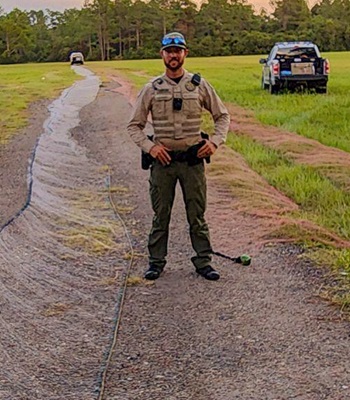 Three veteran Franklin County fishermen, two of whom have been cited in the past for violating Florida’s so-called net ban, have once again run afoul of the law. On Aug. 25, in a boat under 20-feet long, captain William D. Sorenson, 82, of Eastpoint, and passengers Johnny D. Johnson, 59, of Carrabelle, and Donnie G. Nichols, 59, of Eastpoint, were arrested by Florida Fish and Wildlife Conservation Commission officers for multiple violations pertaining to the possession, use and size of monofilament and gill nets, and the possession of commercial quantities of fish. The three were harvesting fish with four separate nets over Florida’s legal size of 500 square feet. photos, more, >>CLICK TO READ<< 08:56
Three veteran Franklin County fishermen, two of whom have been cited in the past for violating Florida’s so-called net ban, have once again run afoul of the law. On Aug. 25, in a boat under 20-feet long, captain William D. Sorenson, 82, of Eastpoint, and passengers Johnny D. Johnson, 59, of Carrabelle, and Donnie G. Nichols, 59, of Eastpoint, were arrested by Florida Fish and Wildlife Conservation Commission officers for multiple violations pertaining to the possession, use and size of monofilament and gill nets, and the possession of commercial quantities of fish. The three were harvesting fish with four separate nets over Florida’s legal size of 500 square feet. photos, more, >>CLICK TO READ<< 08:56
Fishermen Taking Aim At Offshore Wind Projects Across Texas
 Fishermen are taking aim at offshore wind projects across Texas and the United States. On the same day that the Biden Administration pulled the plug on the second lease auction of a major proposed offshore wind project near the LA-TX border, the Bureau of Ocean Energy Management (BOEM) announced that it had been approached by “Hecate Energy Gulf Wind LLC (Hecate Energy) to acquire commercial wind energy lease(s) on the Outer Continental Shelf (OCS) in the Gulf of Mexico.” This potential project would transform thousands of aquatic acres into a wind farm. more, >>CLICK TO READ<< 17:04
Fishermen are taking aim at offshore wind projects across Texas and the United States. On the same day that the Biden Administration pulled the plug on the second lease auction of a major proposed offshore wind project near the LA-TX border, the Bureau of Ocean Energy Management (BOEM) announced that it had been approached by “Hecate Energy Gulf Wind LLC (Hecate Energy) to acquire commercial wind energy lease(s) on the Outer Continental Shelf (OCS) in the Gulf of Mexico.” This potential project would transform thousands of aquatic acres into a wind farm. more, >>CLICK TO READ<< 17:04
Offshore wind energy development: A David vs Goliath story
 As the aggressive pursuit to privatize and industrialize our oceans with offshore wind turbine factories marches on, the small yet powerful voices of coastal communities around the nation continues to fight to be heard in the process. It is a veritable David versus Goliath story. Closer to home in Oregon, I believe that Goliath may be the elitists who live in urban settings like Portland and Salem who believe that they know best what the coastal residents of Oregon need. Oregon is not unique; however, this story is unfolding around the nation where urbanites believe they know best for rural communities that they do not live or work in. These people tout their desire to uplift marginalized voices while they steamroll rural voices, whether it is Tribes, coastal community members, or commercial fishermen. They attempt to downplay the concerns of coastal residents, claiming “we just don’t understand”. But here’s the thing. We actually do understand. more, >>CLICK TO READ<< By Heather Mann 15:57
As the aggressive pursuit to privatize and industrialize our oceans with offshore wind turbine factories marches on, the small yet powerful voices of coastal communities around the nation continues to fight to be heard in the process. It is a veritable David versus Goliath story. Closer to home in Oregon, I believe that Goliath may be the elitists who live in urban settings like Portland and Salem who believe that they know best what the coastal residents of Oregon need. Oregon is not unique; however, this story is unfolding around the nation where urbanites believe they know best for rural communities that they do not live or work in. These people tout their desire to uplift marginalized voices while they steamroll rural voices, whether it is Tribes, coastal community members, or commercial fishermen. They attempt to downplay the concerns of coastal residents, claiming “we just don’t understand”. But here’s the thing. We actually do understand. more, >>CLICK TO READ<< By Heather Mann 15:57

Family-owned fishing company challenges unconstitutional Fishery Management Council
James and Dominick Russo are fishermen who earn their living off the Florida coast. But their livelihood is in jeopardy. James and Dominick have worked in the commercial fishing industry most of their lives. James, the older brother, has more than 30 years of experience under his belt. During the pandemic, the brothers moved to Sarasota, Florida, and opened FFC Seafood to make the most of the business-friendly climate the state offered. While the brothers catch many different types of fish, theirFFC Seafood most profitable haul is gag grouper, a fish popular with high-end restaurants for its sweet flavor. However, just when their new fishing enterprise was thriving, the Gulf of Mexico Fishery Management Council passed Amendment 56, slashing the number of gag grouper that commercial fisherman can legally catch by over 80 percent. more, >>CLICK TO READ<< 13:06
Athearn Marine Agency Boat of the Week: 83′ Steel Shrimp Freezer Trawler/Dragger, 600HP Cummins KTA-19 Diesel
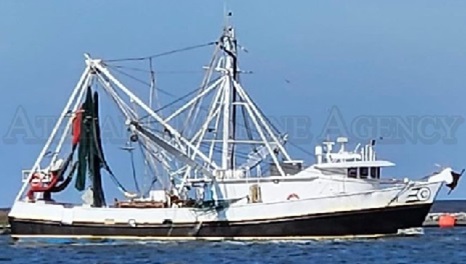 To review specifications, information, and 12 photos’, >click here< To see all the boats in this series, >click here< 06:33
To review specifications, information, and 12 photos’, >click here< To see all the boats in this series, >click here< 06:33
“We’re not getting the full value out of it”: The future of local seafood in Louisiana
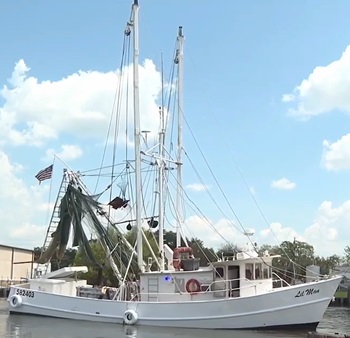 “Industries change over time, like anywhere you are, and so we’re just adapting to the new realities of the seafood supply chain.” LSU’s Seafood Processing Demonstration Lab is a hub for research and innovation. “Our main focus is in underutilized species and byproduct recovery,” said. As the only facility of its kind in-state, this Louisiana Sea Grant-sponsored program works with local processors, restaurateurs, and fishermen, to build local connections. “Louisiana is the #2 seafood state in the nation,” said co-director Thomas Hymel, “but a lot of our product is uh–we’re not getting the full value out of it.” Video, more, >>CLICK TO READ<< 10:10
“Industries change over time, like anywhere you are, and so we’re just adapting to the new realities of the seafood supply chain.” LSU’s Seafood Processing Demonstration Lab is a hub for research and innovation. “Our main focus is in underutilized species and byproduct recovery,” said. As the only facility of its kind in-state, this Louisiana Sea Grant-sponsored program works with local processors, restaurateurs, and fishermen, to build local connections. “Louisiana is the #2 seafood state in the nation,” said co-director Thomas Hymel, “but a lot of our product is uh–we’re not getting the full value out of it.” Video, more, >>CLICK TO READ<< 10:10
SLO County activists oppose offshore wind projects. So they’re taking fight to national level
 There’s a new national group fighting offshore wind development, and you may recognize some of their members. Two San Luis Obispo County anti-offshore wind activists have founded an organization called NOOA, the National Offshore-wind Opposition Alliance. So far, the group includes at least seven environmental and fishing organizations from the East and West coasts, according to President Mandy Davis. Group membership includes REACT Alliance, Protect the Coast Pacific Northwest, the Morro Bay Commercial Fishermen’s Organization, Green Oceans, Protect Our Coast New Jersey, Protect Our Coast Long Island New York and the Long Island Commercial Fishing Association, Davis said. more, >>CLICK TO READ<< 06:43
There’s a new national group fighting offshore wind development, and you may recognize some of their members. Two San Luis Obispo County anti-offshore wind activists have founded an organization called NOOA, the National Offshore-wind Opposition Alliance. So far, the group includes at least seven environmental and fishing organizations from the East and West coasts, according to President Mandy Davis. Group membership includes REACT Alliance, Protect the Coast Pacific Northwest, the Morro Bay Commercial Fishermen’s Organization, Green Oceans, Protect Our Coast New Jersey, Protect Our Coast Long Island New York and the Long Island Commercial Fishing Association, Davis said. more, >>CLICK TO READ<< 06:43
Shrimply the best: Discover Alabama’s shrimp industry
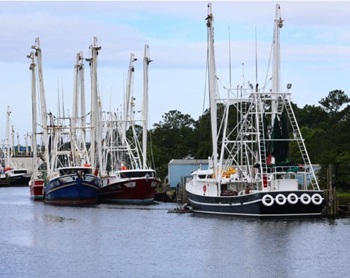 As Bubba Blue famously said in “Forrest Gump,” shrimp is the fruit of the sea. Whether you like it barbecued, boiled, broiled, baked or sautéed, this small creature sure makes a big impact in Alabama. The shrimp industry in Alabama consists of both wild-caught and farm-raised species. Alabama waters are home to between 15 and 22 wild shrimp species. However, only three of these are commercially caught: brown, white and pink. On inland farms, Luke Roy, an Alabama Extension aquatic resources Extension professor, said farmers often raise Pacific white shrimp. “Pacific white shrimp are not native to the Gulf of Mexico, and they are the species of choice by most producers,” Roy said. “They are desirable because of their tolerance for low-salinity water. They also have a desirable feed conversion ratio and the ability to be cultured at high densities with low aggression.” Photos, more, >>CLICK TO READ<< 06:22
As Bubba Blue famously said in “Forrest Gump,” shrimp is the fruit of the sea. Whether you like it barbecued, boiled, broiled, baked or sautéed, this small creature sure makes a big impact in Alabama. The shrimp industry in Alabama consists of both wild-caught and farm-raised species. Alabama waters are home to between 15 and 22 wild shrimp species. However, only three of these are commercially caught: brown, white and pink. On inland farms, Luke Roy, an Alabama Extension aquatic resources Extension professor, said farmers often raise Pacific white shrimp. “Pacific white shrimp are not native to the Gulf of Mexico, and they are the species of choice by most producers,” Roy said. “They are desirable because of their tolerance for low-salinity water. They also have a desirable feed conversion ratio and the ability to be cultured at high densities with low aggression.” Photos, more, >>CLICK TO READ<< 06:22
Coast Guard medevacs man from boat 45 miles west of Anna Maria Island
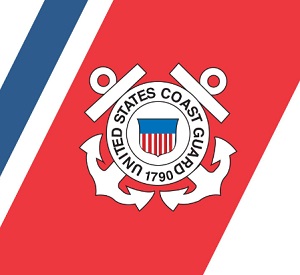 Coast Guard crews medevaced a 51-year-old man from a fishing boat 45 miles west of Anna Maria Island on Friday. An Air Station Clearwater aircrew and a Station St. Petersburg boat crew coordinated the medevac. The man was transported via the aircrew to Tampa General Hospital for further medical care. At 12:23 p.m. Coast Guard Sector St. Petersburg watchstanders received a call from the owner of the commercial fishing boat, Team Galati, reporting a crew member had suffered chest pains and was in need of medical attention. “The teamwork of the captain of the distressed vessel, along with our partners at Air Station Clearwater were paramount in ensuring the patient was able to access a higher level of care,” said Petty Officer 2nd Class Nick Jennings, a crew member from Station St. Petersburg’s 45-foot Response Boat-Medium boat crew. 06:45
Coast Guard crews medevaced a 51-year-old man from a fishing boat 45 miles west of Anna Maria Island on Friday. An Air Station Clearwater aircrew and a Station St. Petersburg boat crew coordinated the medevac. The man was transported via the aircrew to Tampa General Hospital for further medical care. At 12:23 p.m. Coast Guard Sector St. Petersburg watchstanders received a call from the owner of the commercial fishing boat, Team Galati, reporting a crew member had suffered chest pains and was in need of medical attention. “The teamwork of the captain of the distressed vessel, along with our partners at Air Station Clearwater were paramount in ensuring the patient was able to access a higher level of care,” said Petty Officer 2nd Class Nick Jennings, a crew member from Station St. Petersburg’s 45-foot Response Boat-Medium boat crew. 06:45
F/V Second Chance hires salvage company to help get shrimp boat off the Port Aransas sandbars
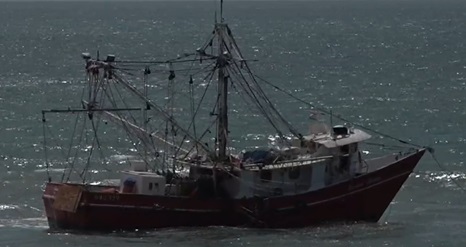 It has now been three weeks since the ‘Second Chance’ shrimp boat washed up along the shore in Port Aransas, but it looks like it’s finally moving along! The boat has moved from the second sandbar of the beach and continues to try to make its way into deeper water. The Coast Guard said the boat’s crew said a salvage company has been hired to help dislodge it, although they did not yet have information on which company was hired or when the move is scheduled to begin. Video, more, >>CLICK TO READ<< 13:32
It has now been three weeks since the ‘Second Chance’ shrimp boat washed up along the shore in Port Aransas, but it looks like it’s finally moving along! The boat has moved from the second sandbar of the beach and continues to try to make its way into deeper water. The Coast Guard said the boat’s crew said a salvage company has been hired to help dislodge it, although they did not yet have information on which company was hired or when the move is scheduled to begin. Video, more, >>CLICK TO READ<< 13:32
U.S. Offshore Wind Opponents Seek to Form National Group to Fight Projects
 U.S. activists opposed to offshore wind development are forming a national coalition aimed at fighting projects from California to New England, according to the effort’s founder and two other organizations. The National Offshore-wind Opposition Alliance, or NOOA, aims to bring a national profile to what is currently a fractured movement of dozens of local groups, according to its president, Mandy Davis. Offshore wind is a nascent industry in the United States and a key pillar of U.S. President Joe Biden’s plan to combat climate change. His administration’s push to install turbines along every U.S. coastline has attracted pushback, including multiple lawsuits, from residents concerned about the industry’s impact on tourism, property values, fishing and marine habitats. more, >>CLICK TO READ<< 08:25
U.S. activists opposed to offshore wind development are forming a national coalition aimed at fighting projects from California to New England, according to the effort’s founder and two other organizations. The National Offshore-wind Opposition Alliance, or NOOA, aims to bring a national profile to what is currently a fractured movement of dozens of local groups, according to its president, Mandy Davis. Offshore wind is a nascent industry in the United States and a key pillar of U.S. President Joe Biden’s plan to combat climate change. His administration’s push to install turbines along every U.S. coastline has attracted pushback, including multiple lawsuits, from residents concerned about the industry’s impact on tourism, property values, fishing and marine habitats. more, >>CLICK TO READ<< 08:25
Shrimp boat captain grateful for community support
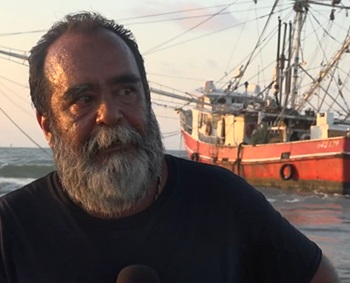 For just over a week, it has been a sight for the curious: a mysterious shrimp boat that washed up along the beach in Port Aransas. For Phillip Lara, Captain of the Second Chance boat, it has been one crashing wave after another. “Well, the whole thing has been a nightmare,” he said. “We accidentally busted our anchor line, and we were coming in to replace it, and then we had a fuel issue, which killed the boat. I had a secondary anchor, and it wasn’t big enough. We did everything we could to stop it.” The community has taken notice of his plight. A GoFundMe page has raised nearly $5,600 and early Wednesday morning, a few of the faithful gathered in prayer to ask for help of another kind. Video, more, >>CLICK TO READ<< 06:21
For just over a week, it has been a sight for the curious: a mysterious shrimp boat that washed up along the beach in Port Aransas. For Phillip Lara, Captain of the Second Chance boat, it has been one crashing wave after another. “Well, the whole thing has been a nightmare,” he said. “We accidentally busted our anchor line, and we were coming in to replace it, and then we had a fuel issue, which killed the boat. I had a secondary anchor, and it wasn’t big enough. We did everything we could to stop it.” The community has taken notice of his plight. A GoFundMe page has raised nearly $5,600 and early Wednesday morning, a few of the faithful gathered in prayer to ask for help of another kind. Video, more, >>CLICK TO READ<< 06:21
Horseshoe Beach residents react to Hurricane Debby’s aftermath
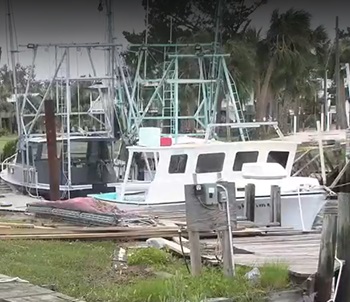 One Dixie County town is standing strong after Hurricane Debby appeared in North Central Florida. Horseshoe Beach residents are cleaning up and rebuilding their community after Debby and showing great resilience one year later after the devastation of Hurricane Idalia. Long-time resident Ronald Neeley sat through yet another storm. “It was anywhere between 80 to 90 miles an hour wind hurricane and I stayed here,” said Neeley. “I stayed during this one, it wasn’t too bad, but the other one was nasty.” Hurricane Idalia hit Horseshoe Beach hard last year, leaving homes and buildings damaged beyond repair. Video, more, CLICK TO READ<< 12:46
One Dixie County town is standing strong after Hurricane Debby appeared in North Central Florida. Horseshoe Beach residents are cleaning up and rebuilding their community after Debby and showing great resilience one year later after the devastation of Hurricane Idalia. Long-time resident Ronald Neeley sat through yet another storm. “It was anywhere between 80 to 90 miles an hour wind hurricane and I stayed here,” said Neeley. “I stayed during this one, it wasn’t too bad, but the other one was nasty.” Hurricane Idalia hit Horseshoe Beach hard last year, leaving homes and buildings damaged beyond repair. Video, more, CLICK TO READ<< 12:46
Hurricane Debby makes landfall in Florida as Cat 1 storm.
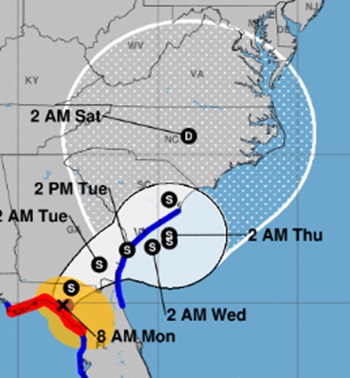 Hurricane Debby made landfall near Steinhatchee, Florida in the Florida Big Bend area as a Category 1 hurricane around 7 a.m. Monday. Sustained winds were 80 mph, making Debby a Category 1 hurricane at the time of landfall. Landfall came less than 12 hours after Debby strengthened from a tropical storm into a hurricane Although winds had already dropped to 75 mph by 8 a.m., forecasters warned life-threatening storm surge and “potentially catastrophic rainfall” are expected before Debby finishes with Florida and as it heads toward Georgia and the Carolinas. Debby is expected to bring 6 to 12 inches of rain to Florida, with some areas seeing up to 18 inches, according to the National Hurricane Center. Video, photos, more, >>CLICK TO READ<< 10:37
Hurricane Debby made landfall near Steinhatchee, Florida in the Florida Big Bend area as a Category 1 hurricane around 7 a.m. Monday. Sustained winds were 80 mph, making Debby a Category 1 hurricane at the time of landfall. Landfall came less than 12 hours after Debby strengthened from a tropical storm into a hurricane Although winds had already dropped to 75 mph by 8 a.m., forecasters warned life-threatening storm surge and “potentially catastrophic rainfall” are expected before Debby finishes with Florida and as it heads toward Georgia and the Carolinas. Debby is expected to bring 6 to 12 inches of rain to Florida, with some areas seeing up to 18 inches, according to the National Hurricane Center. Video, photos, more, >>CLICK TO READ<< 10:37
UPDATE: Tropical Storm Debby to Bring Major Flooding to Southeast After Florida Landfall
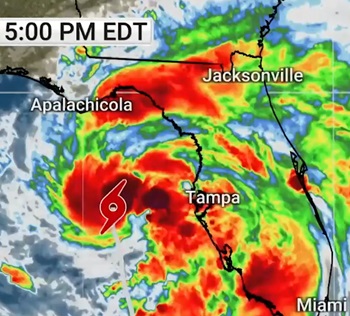 Tropical Storm Debby could bring historically heavy rainfall, gusty winds and a few tornadoes, from north Florida to coastal South Carolina after making landfall in Florida’s Big Bend region Monday. Flash flooding is the number one concern with Debby. NOAA has issued their highest level of flood outlook for both Monday and Tuesday, shown in pink on the maps below. These areas will likely experience damaging flooding and could experience life-threatening flooding. Debby will also bring gusty winds, coastal flooding and a few tornadoes across the Florida Peninsula Sunday and then along the Southeast coast early in the coming week, where it could slow down or even stall, prolonging impacts. Here’s where watches and warnings are in effect: A hurricane warning is in effect for the Florida Big Bend region from the Suwannee River to Indian Pass. more, >>CLICK TO READ<< 19:56
Tropical Storm Debby could bring historically heavy rainfall, gusty winds and a few tornadoes, from north Florida to coastal South Carolina after making landfall in Florida’s Big Bend region Monday. Flash flooding is the number one concern with Debby. NOAA has issued their highest level of flood outlook for both Monday and Tuesday, shown in pink on the maps below. These areas will likely experience damaging flooding and could experience life-threatening flooding. Debby will also bring gusty winds, coastal flooding and a few tornadoes across the Florida Peninsula Sunday and then along the Southeast coast early in the coming week, where it could slow down or even stall, prolonging impacts. Here’s where watches and warnings are in effect: A hurricane warning is in effect for the Florida Big Bend region from the Suwannee River to Indian Pass. more, >>CLICK TO READ<< 19:56
Tropical Storm Debby timeline: When could it become hurricane, make landfall?
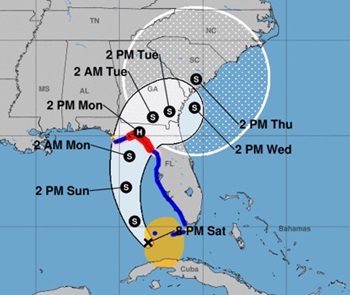 Tropical Storm Debby officially formed Saturday afternoon, making it the fourth named storm of the 2024 Atlantic hurricane season, according to the National Hurricane Center. Forecasters believe Tropical Storm Debby could be ‘at or near hurricane’ strength as it approaches the Florida coast before landfall, according to the 5 p.m. advisory. A timeline has been established for when the eye of what is now known as Tropical Storm Debby could impact Florida over the weekend and into early next week. On Saturday, the NHC issued a hurricane watch and warning for portions of Florida’s Gulf Coast. more, >>CLICK TO READ<< 07:32
Tropical Storm Debby officially formed Saturday afternoon, making it the fourth named storm of the 2024 Atlantic hurricane season, according to the National Hurricane Center. Forecasters believe Tropical Storm Debby could be ‘at or near hurricane’ strength as it approaches the Florida coast before landfall, according to the 5 p.m. advisory. A timeline has been established for when the eye of what is now known as Tropical Storm Debby could impact Florida over the weekend and into early next week. On Saturday, the NHC issued a hurricane watch and warning for portions of Florida’s Gulf Coast. more, >>CLICK TO READ<< 07:32






